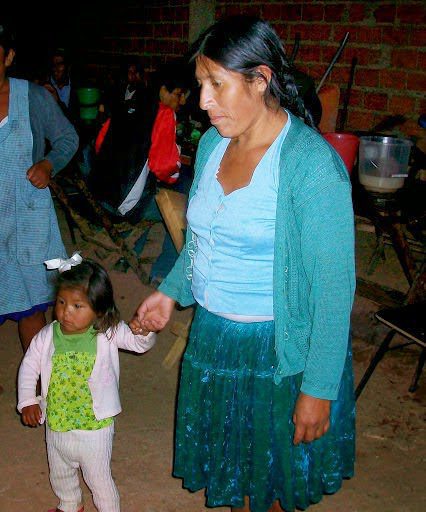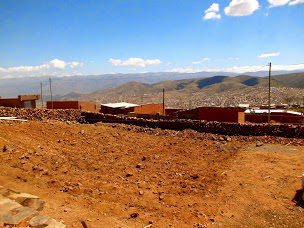Mission Monday: “You’re Going to Have to Wait”

In today’s post, missioner Annemarie Barret reflects on the privilege of time and how waiting on others, on events, and life in general has personally affected her and informed her toward deeper ministry of presence.
“You are going to have to wait.”
I remember Hermano Ignacio’s warning when he visited during our formation in Washington, D.C. He has lived in Bolivia for over 35 years and of all the things he decided to share with us about the reality of living in Bolivia, he said, “You are going to have to wait.”
Of course, he was right.
Waiting, more waiting, and still more waiting is one of the only constants in my life here in Bolivia.
I cannot be sure if the other people will show up to the meeting, if the store will be open, if the traffic will be bad, if the micro bus line is running, if the gas truck will come. Well, I really cannot be sure of anything except the fact that I will have to wait to find out.
 |
| Fellow garden worker in Santa Rosa with her daughter |
And in the midst of all of that waiting, it is pretty easy to get frustrated, to hate the world, to do everything but see beyond my own damn nose, to forget sometimes that I am not the only one waiting.
But the relationships I have with Bolivians, specifically my relationships with the women in Santa Rosa, a more marginalized community in the southern zone of Cochabamba, remind me that this experience of waiting is not new for them. It has always been a significant part of their reality.
Twice now, while visiting the house of one of the women in Santa Rosa, she has seemed very worried and distracted. She fidgeted around and kept opening and closing her cell phone.
I finally asked what might be wrong. Both times, she was expecting her dad to visit from the campo but did not know when he would be arriving and could not get ahold of her siblings to find out. All she knew was where he was supposed to meet her, in the cancha, the largest open air market in the city, at least a 45 minute micro bus ride and a potential 30 plus minutes of waiting for the micro bus to pick her up from where she lives.
The second time this happened, she accepted a ride into the city from our working team after we finished our meeting in her community. As I sat next to her on the ride in the back of our truck, she explained that she had left her cell phone at home with her kids. It was not like she could call her dad, anyways. He did not have a phone with him either.
 |
| Newly planted garden in Santa Rosa |
But it was getting dark and her kids were home alone without dinner made, and she knew she still had at least another 30 minutes from where we were going to drop her off to arrive at the spot to meet her dad.
She didn’t even know if he would wait for her that long. If she did not make it in time, he might just leave, which would turn her right back to waiting for the micro bus to take her back to her kids.
With a half smile and mostly worried face she said to me, “I just wish I had wings. I wish I could just fly to the cancha.”
Her experience is common. Another day, I visited one of the other women’s homes in Santa Rosa and I found her dad, who had also arrived for a visit from the campo, waiting outside her house. She was not home, and he did not have a way of contacting her. He heard from a neighbor that she had gone to the cancha. It was nearly 6 PM, and he told me he had been waiting since noon. He still did not know when she would get back.
 |
| Sharing a meal with a family in Santa Rosa |
My experiences of waiting strike me as distinct from the waiting the women in Santa Rosa experience. I can complain all I want, but I still have a cell phone, no kids, money in my pocket, and easy access to transportation. The list of privileges I have that save me from ever experiencing too much anxiety has been long my whole life.
But in living closer to the reality of these women, I am learning to see those privileges more clearly, to see how unfair, unjust their daily reality can be compared to my own, largely because we come from different economic backgrounds and I have always been able to buy my way out of such anxiety or suffering.
And as a Franciscan lay missioner, I am also learning that the solutions to these complex problems do not lie in quick fixes like buying these women easier access to communication. Only in drawing closer in relationship with them are we able to begin to understand the complexity and begin to journey together with them in forming a response.
For me, that journey begins with awareness, recognizing that there exists a grave world-wide inequality in access to resources. For those of us who are not quite so marginalized, available resources are just part of our daily lives, like access to potable water, nutritional food, effective education, reliable transportation, and basic forms of communication. We talk about them as rights, but many people I know experience these as privileges they do not know.
But in knowing them, in sharing relationships with those who are marginalized in our communities, we may come to not only know the suffering, but the resilience and potential for solutions that exist in these communities as well.
Tagged in:
